– –
The Series
[Rating:3.5/5]
While all documentaries on World War II may seem tangential in comparison to the magnum opus that is the 1973 British classic The World at War, Ken Burns’ decidedly smaller in scope The War is simply in and of itself an exercise in tangentiality. Where Burns’ now familiar style of of black and white archival footage, pans across still photographs, a running soundtrack apposite to the era and poignant running narrative that took the documentary world by storm with his hit mini-series The Civil War and following effort Baseball, was once a strength, here it may very well be a weakness. We may have seen this coming with his effort in Jazz. Sure, Jazz may itself have spun off into tangents, following winding roads and threads for minor musicians over a vast period of time, really, when talking about music, it can be forgiven. For a musician and voracious consumer of music like me, Jazz was a wellspring of information, an adventure to be explored.
With The War, Burns has chosen to filter the grand scope of World War II down to a strictly American point of view. Some argue that, even The World at War was Anglo-centric. I counter that argument with the very real evidence that The World at War, to this day, stands as the only documentary series on the Second World War that made a strong effort to explore the war from every angle, be it Japanese, Soviet, British, or American, even interviewing former military from each of these significant actors in the conflict and devoting vast swathes of time across its over twenty episodes to the various fronts and battles in every part of the world. Can we label something Anglo-centric simple because it is British and doesn’t tell a narrative of Americans swooping in to the rescue?
Contrast this with The War, where Burns has decided to focus on four rather small American towns and the impact the Second World War had on the people in those towns, while following the experiences of the soldiers from those towns “over there.” Luverne, Minnesota; Mobile, Alabama; Sacramento, California; and Waterbury, Connecticut are highlighted and stories involve both the social issues of the times and the actual war.
Seemingly in a meandering manner with the typical stentorian narration from Keith David, Burns follows a host of threads from the internment of Japanese-Americans in California, the segregation of black soldiers in the military (and subsequent discord these soldiers would bring when appearing in southern towns like Mobile) and other less contentious local stories. A quick scan of comments on the usual internet sites runs the gamut from Burns doesn’t touch on these topics too much to he’s a bolshevik who has given in to leftist propaganda and is preying on white guilt, as if providing all of the facts — even the uncomfortable ones — of the American experience during World War II is now the equivalent of communist propaganda. In fact, neither end of the spectrum is true. Burns does give in somewhat to his politically correct bent, but most of the facts are provided pretty straightforwardly. However, Burns can’t help but take things too far, as when he tacks on an extra story after one particular episode about a native Crow Indian soldier who manages to fulfill all the requirements of becoming chief during his time spent in battle. Interesting as this story may be, did we really need this included just to let us know that, yes, there were indeed Native Americans fighting for America during the war too?
The battle stories of veterans, some of them speaking out for the first time, some of them the words of those killed in action told through their letters home, are often the most interesting, but nothing here offers a new insight into that bold proclamation – “The War.” Burns stated that he wanted to make this documentary because he found out that many American high school students today actually believed we fought with the Germans against the Russians. It’s a statement that sounds astonishing, but believable when you see the rankings of the U.S. educational system versus the rest of the world. If that was truly the case, then it was a noble reason. Oddly enough, Burns hardly mentions the Soviets, or any other nations outside of Japan and Germany and territory that the Americans and their British allies may have been fighting through in this documentary on “The War.”
Seven episodes of beautiful Jazz-era music, quaint and heart wrenching stories, some shocking imagery that will stick with you for a long time, but ultimately, The War is more tangential storytelling on wartime America than it is a strong documentary on World War II itself.
Video Quality
[Rating:3.5/5]
The War is granted a 1080i/60 AVC encodement framed at 1.78:1. Naturally, for a documentary of this nature, the sources will be of varying degrees of quality and mostly archival in nature, so they won’t necessarily yield the best high definition imagery. Some of the scanned photos look quite good in high definition, nonetheless, but there were a few places where pans across photos or stills shots on photos showed some compression errors like smearing and mild posterization. Mostly, however, the imagery looked good. There was an obvious artistic intent in the live interview segments to impart a very gritty, grainy quality to the image; this wasn’t necessarily a bad thing. Outside of the more contemporary footage, quality varies very widely, and switches between color, black and white, still photos and moving film.
Audio Quality
[Rating:3.5/5]
This documentary mini-series with its persistent sounds of warfare – bombs blasting, artillery fire, tanks rolling, airplanes soaring overhead – screams out for a lossless soundtrack. Alas, it has been given but two lossy Dolby Digital mixes, a 2.0 stereo mix and a 5.1 surround mix. The 5.1 mix is actually rather engaging, with clean and full dialogue in the center channel and, as stated, the many sounds of warfare engulfing you all bolstered by ample use of the subwoofer. Unfortunately, the sounds can become a bit fatiguing after a while due to the unnatural trail-offs and not quite airy high frequencies. Things collapse a lot with the 2.0 mix and I found it less engaging, but for a documentary like this, it works.
Supplemental Materials
[Rating:2/5]
The two select episode audio commentaries by Ken Burns and Lynn Novick make for the most enjoyable extras in this release. The two have a very deliberate style and offer up lots of tidbits on the production, their subjects and some other historical facts pertinent to the documentary. The bulk of the remaining supplements is made up of interviews and scenes cut from the originally televised version. While they don’t bring too much more to the story, they are interesting nonetheless.
The supplements:
- Episode One Audio Commentary with Ken Burns and Lynn Novick
- Episode Four Audio Commentary with Ken Burns and Lynn Novick
- Making The War (1.78:1; SD; 00:36:24)
- Deleted Scenes:
- War Correspondents
- Attacks on Aachen and Metz
- Flies
- Al McIntosh on Sacrifice
- Sid Phillips Writes Home
- Order 9066
- Breaking Out of the Hedgerows
- War Town
- Wax Work
- Jim Work
- Jim Thomas Dies
- Fussell Kills
- The Old Country
- Operation Cobra
- Sam Hynes on Okinawa
- Inouye’s Lucky Dollar
- Returning Fathers
- Sascha Comes Home
- Additional Interviews:
- Quentin Aanenson
- Asako Tokuno
- Barbara Covington
- Joe Medicine Crow
- Paul Fussell
- Tom Galloway
- John Gray
- Sam Hynes
- Daniel Inouye
- Sascha Weinzheimer
- Jim Sherman
- Burnett Miller
- Bill Lansford
- Katharine Phillips
The Definitive Word
Overall:
[Rating:3.5/5]
Ken Burns’ The War is not the filmmakers strongest documentary and not, by far, the best documentary on World War II; that honor still goes to The World at War. Still, The War does hold some value despite its wholly American viewpoint and lack of a broad perspective or new information on the war.
Additional Screen Captures
[amazon-product align=”center”]B007BMIFI4[/amazon-product]
[amazon-product]B007BMIFI4[/amazon-product]


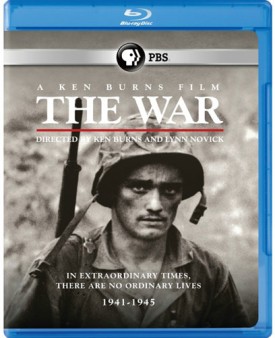

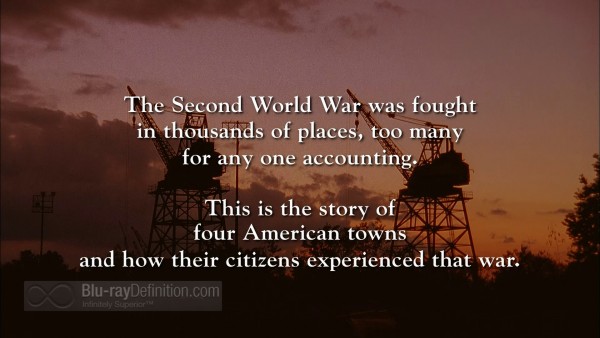

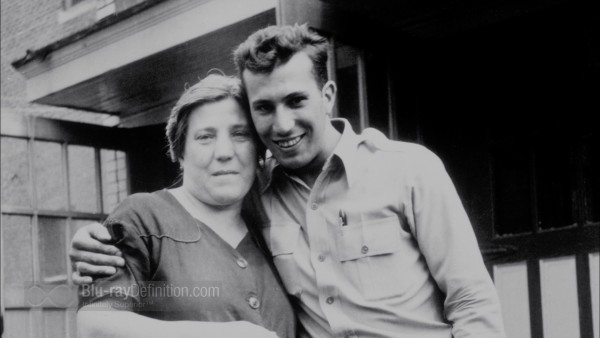
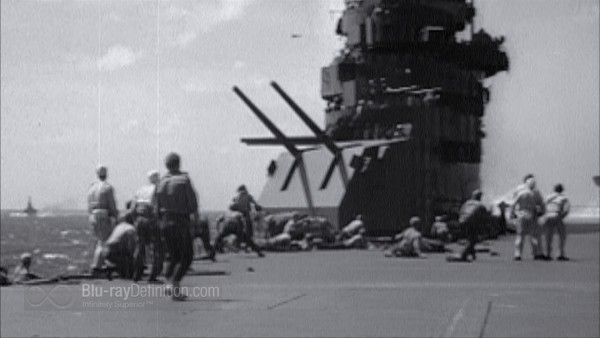
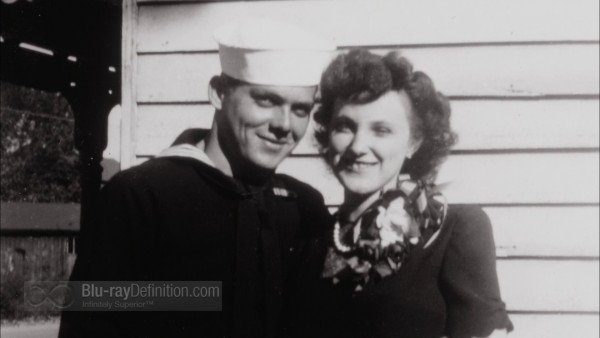
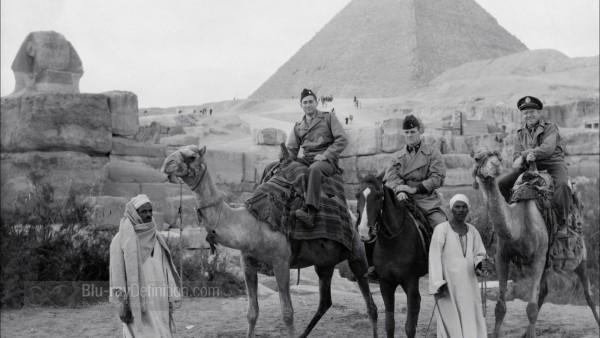
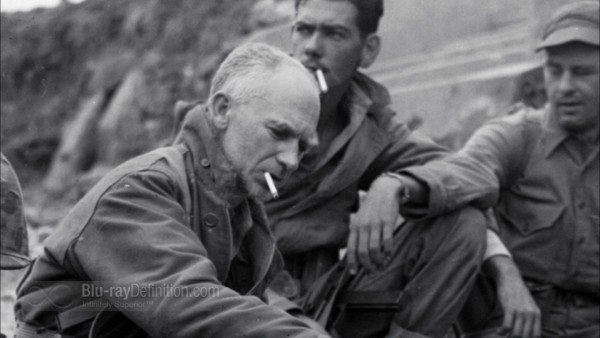
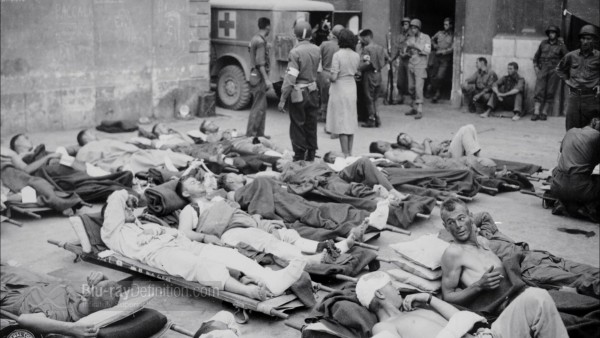
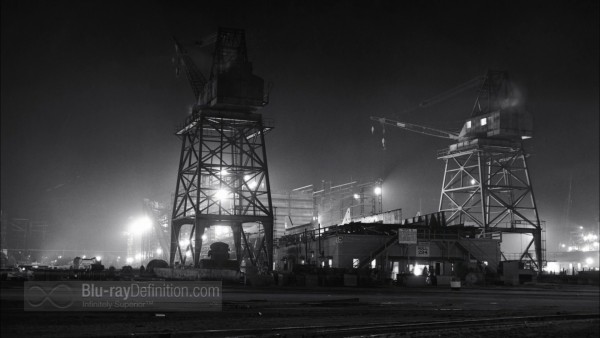
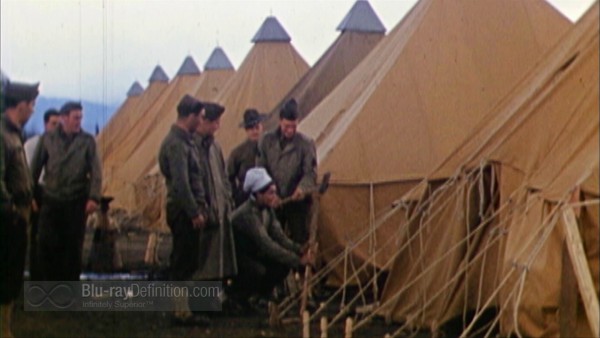
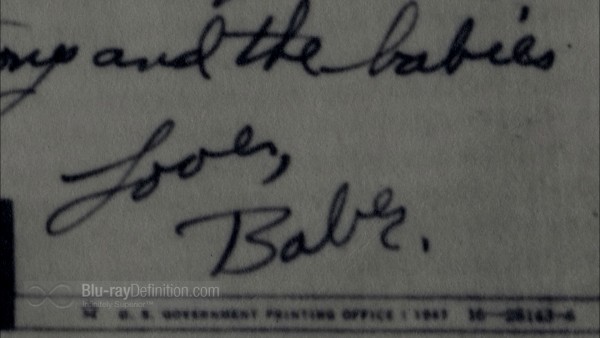
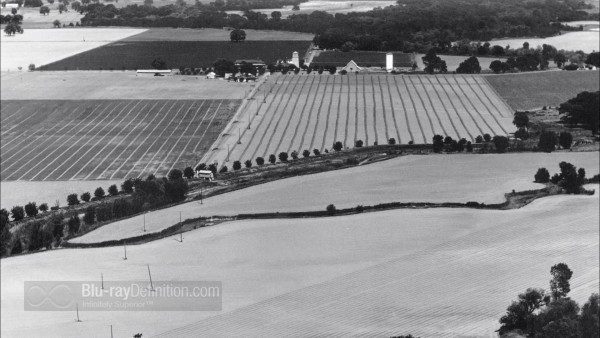
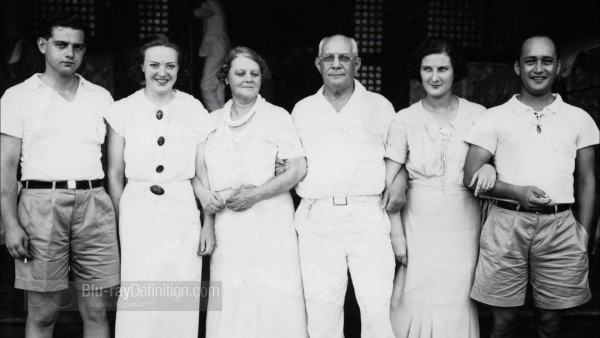
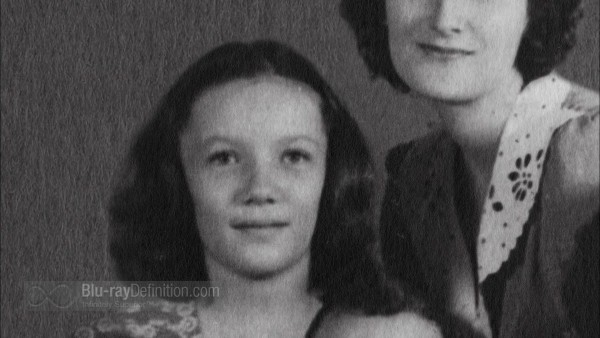
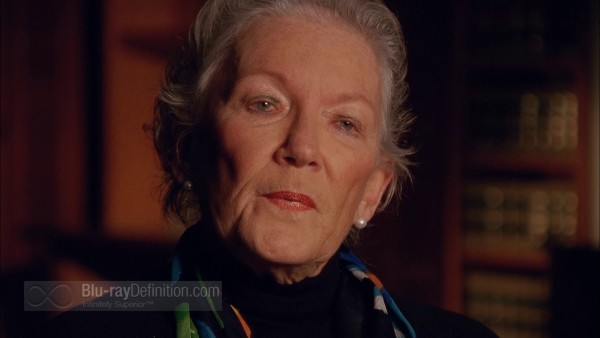
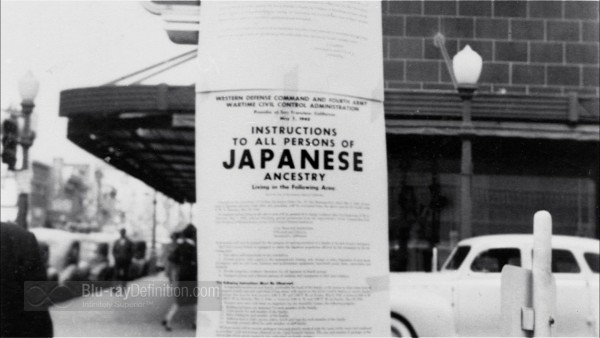
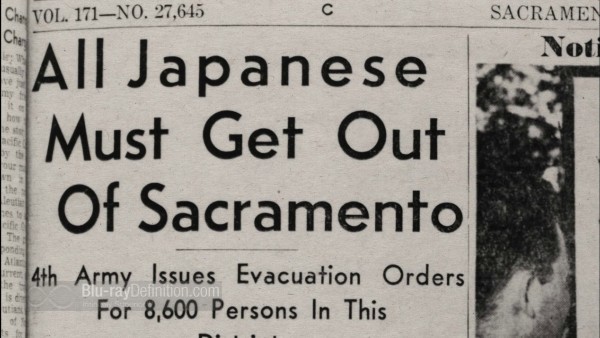
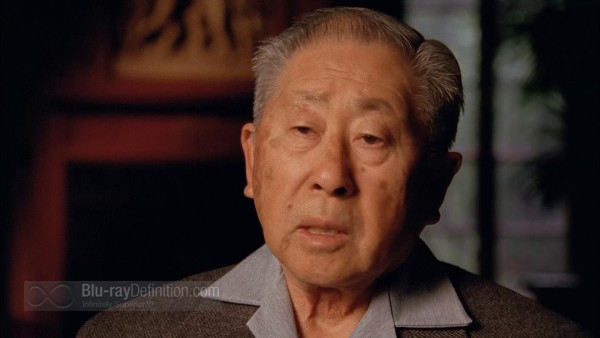
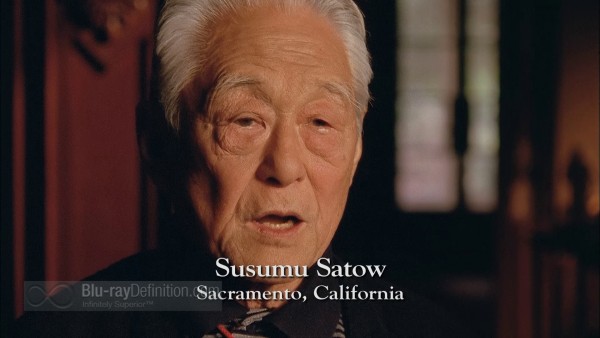
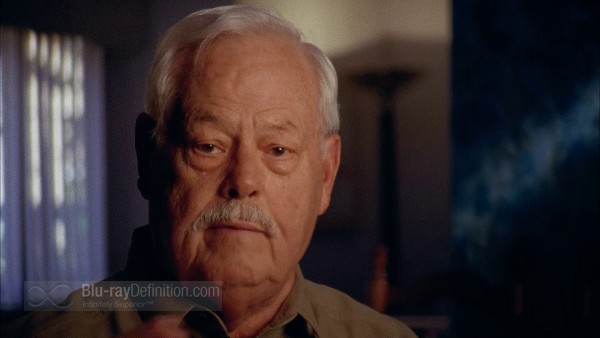
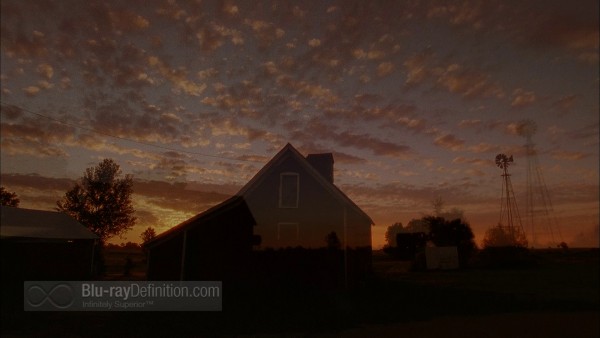
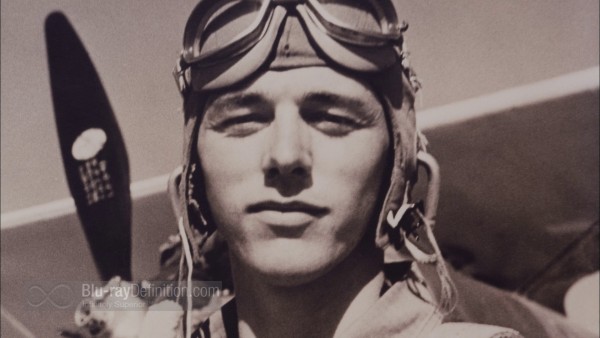
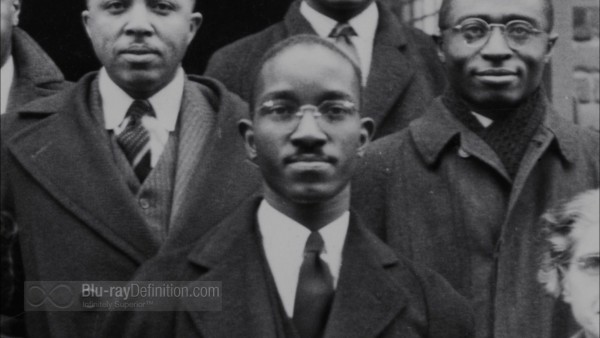
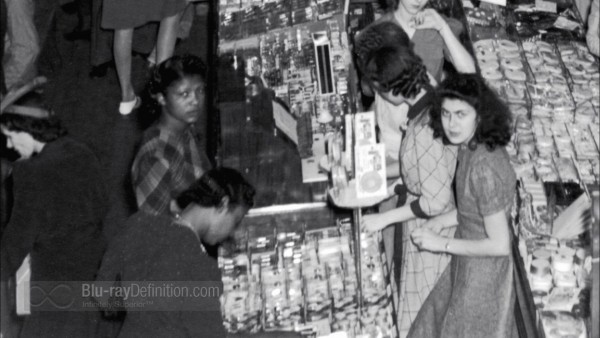
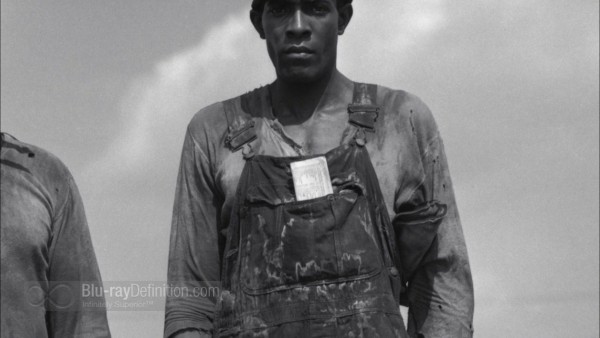
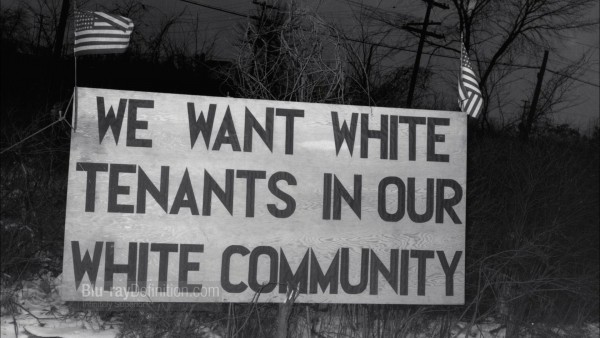
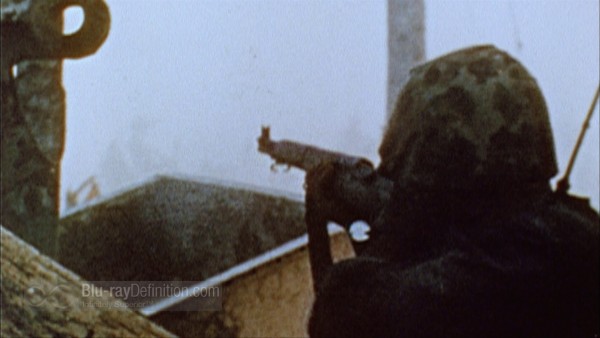
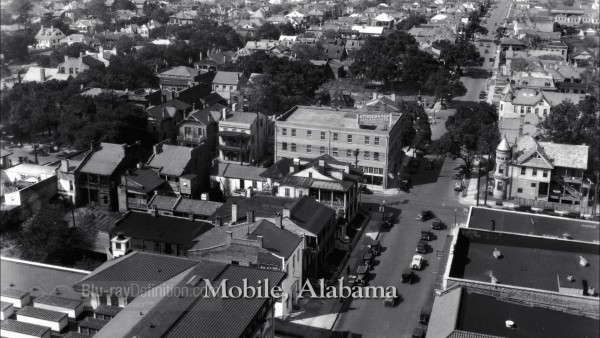
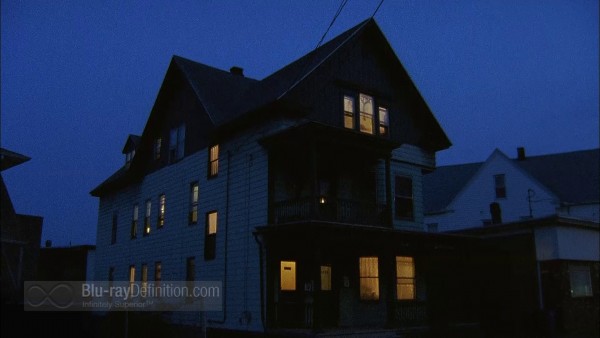
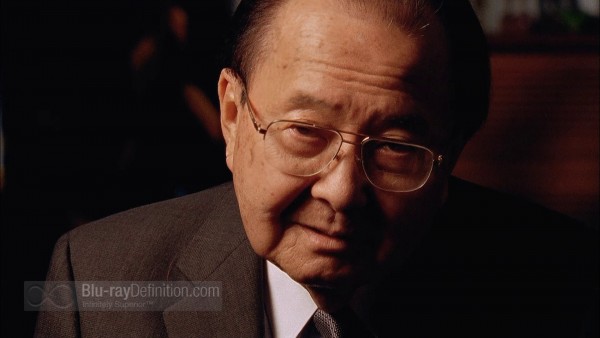
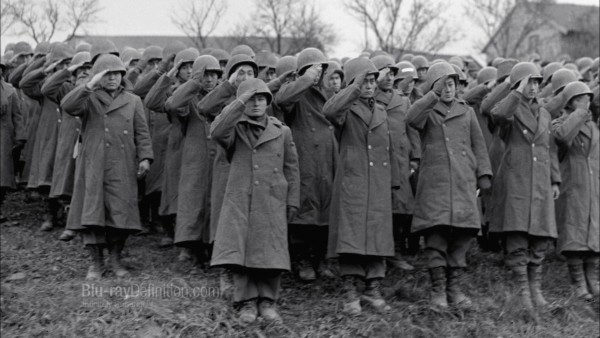
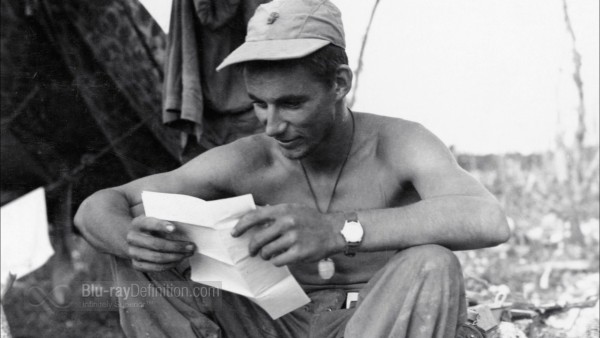
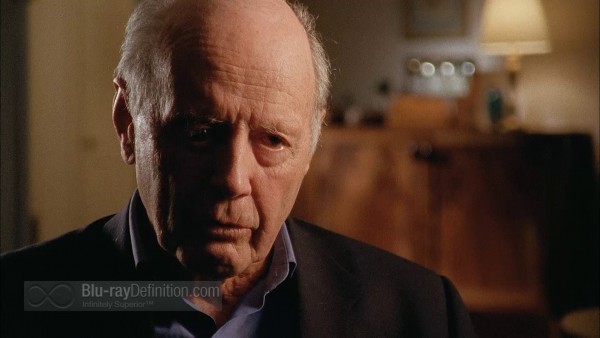
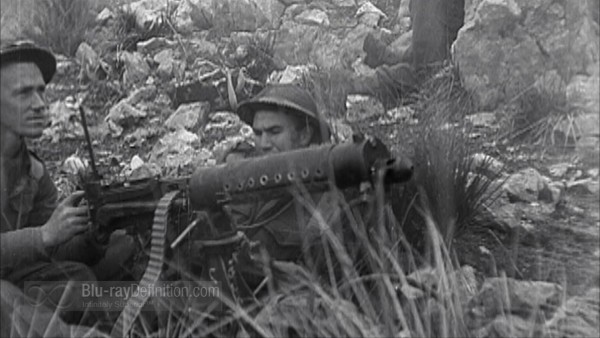
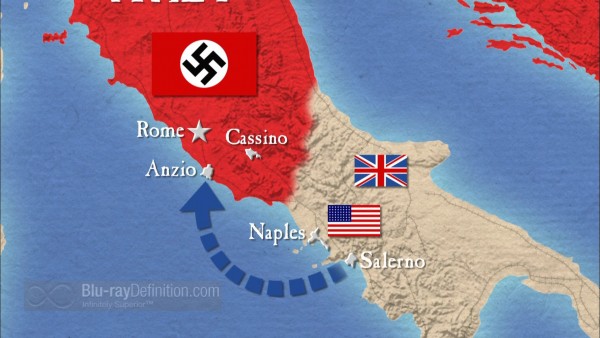
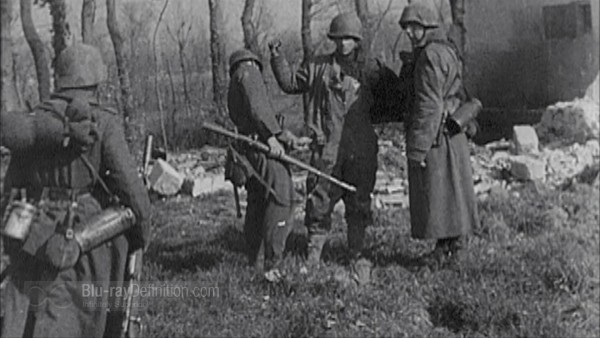
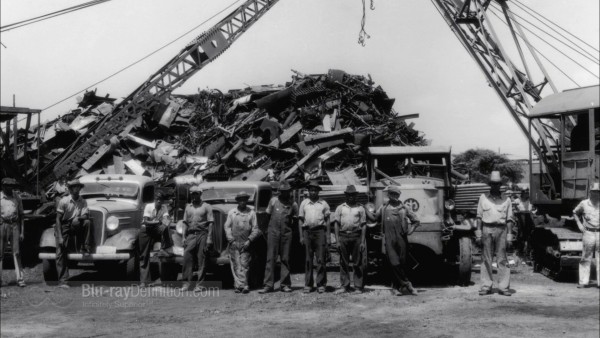
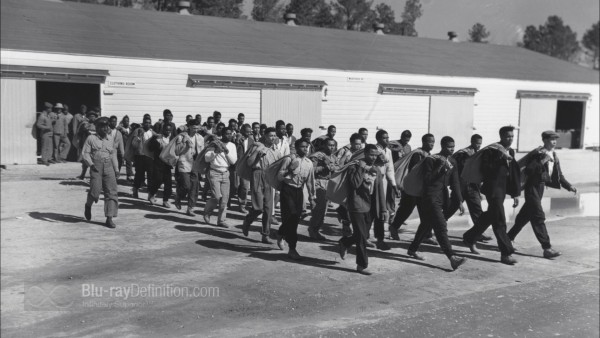
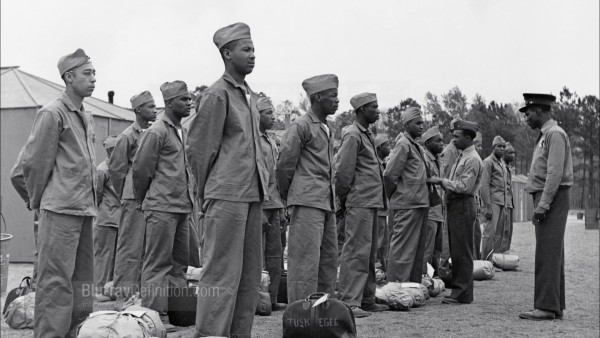
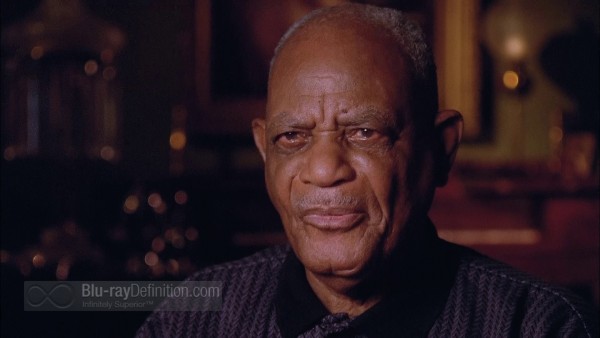
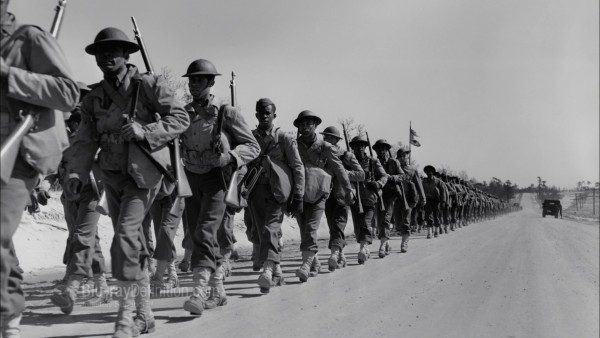
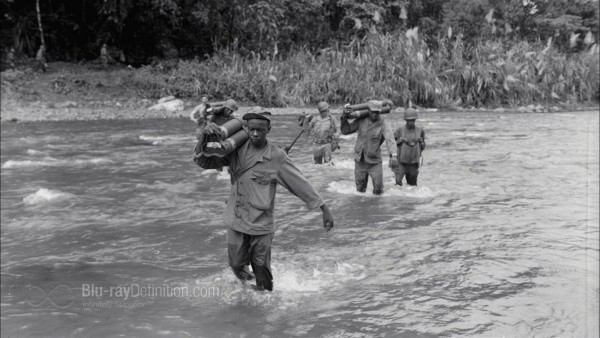
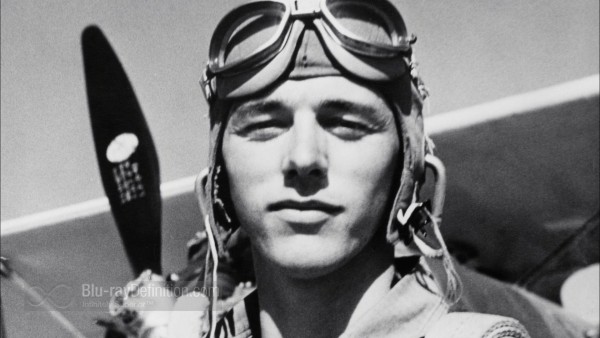
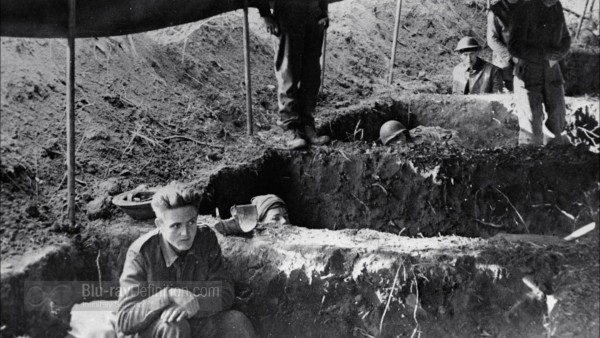
In the reviews I’ve been reading about this series, Ken Burns is criticized for only showing the American POV and not really giving his subject enough depth. This is true to some extent.
In Burns’ defense, I’ve heard him say in many interviews that his intent is to tell the American story with his films and try to help his audience understand their own country better. From this perspective it seems to me he’s very successful.
Thanks for your comment, greggster59. It’s a point well taken, to be sure, my issue here is that there are better formats to restrict oneself to a wholly American story than a world war, which, by its very nature, is global. Burns’ style works better, therefore, when he is speaking on The Civil War, Baseball, or even Jazz. You’ll find that I was critical of the documentary Apocalypse:World War II (http://www.blu-raydefinition.com/reviews/apocalypse-world-war-ii-blu-ray-review.html) for being ridiculously Eurocentric to the point that the U.S. is barely mentioned, the Pacific arena hardly discussed, and, of all the horrible things to do, the imagery colorized. Of the two documentaries, I would a choose the Burns series for at least admitting to what it is in a way, a story about America during the war, despite its rather generic title. :-)
You are right, of course. The World at War is much more comprehensive look at WW2.
But, I see Burns’ look at our country in all his films as an investigation into what we were and what we are becoming. He has mentioned many times that, ultimately, you cannot tell the story of America and not address race, an issue that is far from resolved. In The War, spending half the time on WW2’s effect domestically and the amount of sacrifice that was made by ordinary Americans contrasts heavily with the lack of sacrifice most Americans have been asked to make in our current wars. I really feel the message of The War was cautionary in that we should only go to war if we are prepared to deal with the conflict as a nation and that we should never ask our soldiers to lay down their lives unless it is truly necessary.
I think his films encourage introspection as much as they miss the mark of living up to the definitive attitude evoked by their titles. And I think he really only succeeded to be thorough about a subject with The Civil War.
I think we are not that far off in our opinions, actually, if you really parse what I originally wrote in my review. :-) I agree on all counts about Burns’ style and the paragon of that being The Civil War. The issue of race is one factor I agree, must be mentioned, if you are telling a story of America during the war, I just take issue with how Burns went about it at some points during this series, as I mentioned, seeming to go out of his way to include tacked on stories, of,for example, the story od the native American soldier, that just seemed to be at too much of a juxtaposition, rather than a natural part of the storytelling. But, ultimately, as I stated before, I just think a “world” war isn’t the right venue for Burns’ vernacular. :-)
I love Ken Burns and really enjoy all his documentaries!